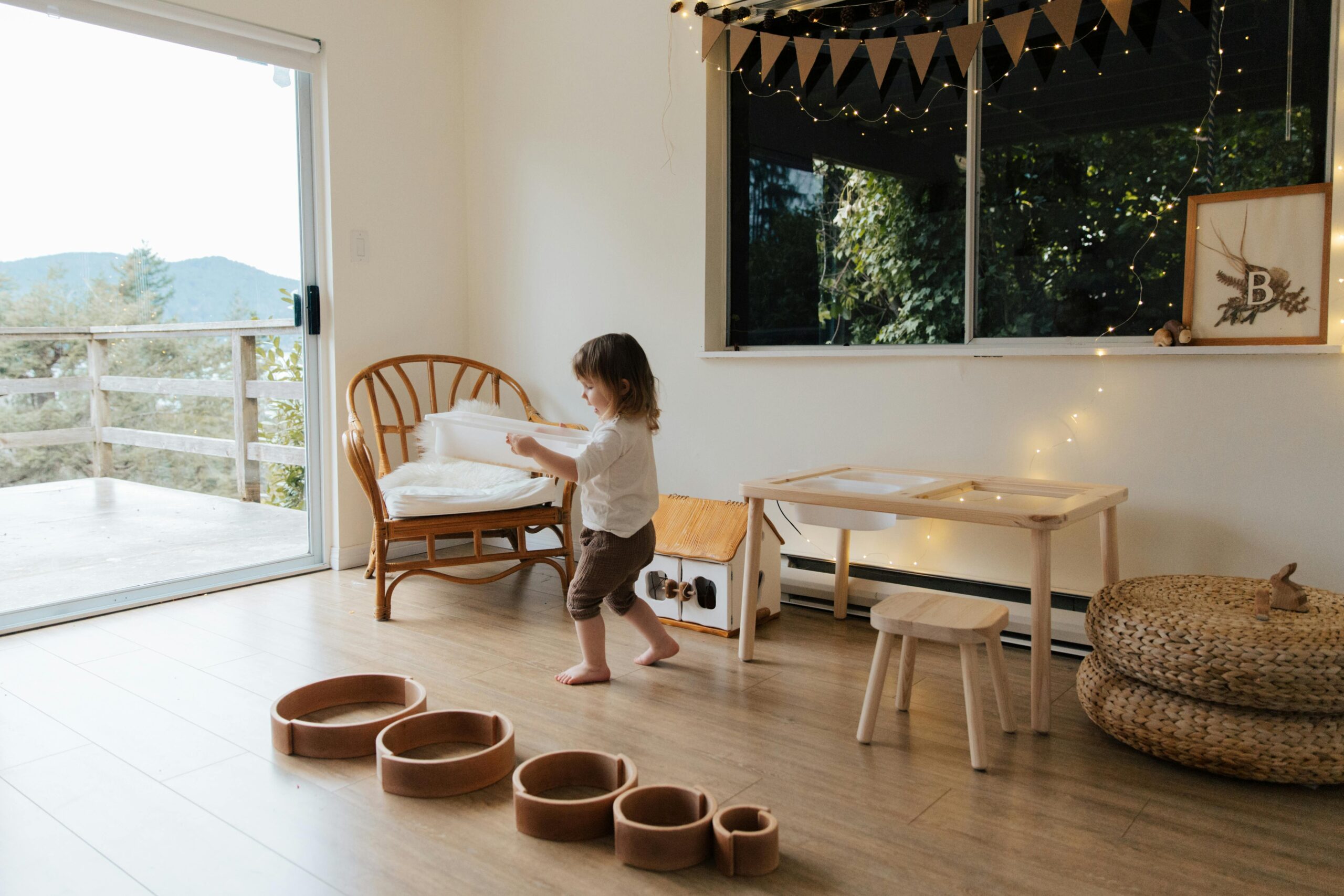AMontessori-inspired toys are becoming a favorite among parents for their simplicity, purpose, and ability to foster independent play. Rooted in the Montessori method, these toys are designed to help toddlers develop essential life skills, coordination, and creativity while engaging their natural curiosity. In this blog post, we’ll explore the best Montessori toys for toddlers and how they can support your child’s development.
What Are Montessori Toys?
Montessori toys are simple, purposeful, and made from natural materials like wood. They encourage hands-on learning, focus, and independence while promoting skills such as problem-solving, hand-eye coordination, and sensory exploration. These toys are often open-ended, meaning they allow children to use their imagination and creativity during play.
Benefits of Montessori Toys for Toddlers
- Encourage Independence: Toddlers can explore and learn on their own without excessive adult intervention.
- Promote Focus: Simple designs help toddlers concentrate and complete tasks.
- Support Developmental Milestones: Toys are designed to align with the child’s stage of development.
- Sustainable and Eco-Friendly: Most Montessori toys are durable, high-quality, and made from natural materials.
Top Montessori Toys for Toddlers
This post contains affiliate links to my favorite products at no additional cost to you. Thank you for your support!
1. Wooden Shape Sorters
Shape sorters are excellent for developing hand-eye coordination, problem-solving, and fine motor skills. Look for sorters with simple designs and natural wood materials.
2. Stacking and Nesting Toys
From wooden stacking rings to nesting cups, these toys help toddlers learn about size, sequencing, and spatial awareness.
3. Montessori Object Permanence Box
This classic Montessori toy teaches toddlers about object permanence—an essential cognitive milestone. Dropping a ball into the box and watching it reappear provides endless fascination.
4. Practical Life Toys
Miniature versions of real-life tools, like toddler-sized brooms, mops, or kitchen sets, help children practice life skills while feeling accomplished.
5. Wooden Puzzles
Simple, chunky puzzles with knobs are perfect for little hands. They teach shape recognition, fine motor skills, and patience.
6. Musical Instruments
Montessori musical toys like wooden xylophones, drums, and maracas encourage sensory exploration and rhythm awareness.
7. Building Blocks
Natural wooden blocks inspire creativity and problem-solving while helping toddlers strengthen motor skills.
8. Peg Boards
Peg boards allow toddlers to practice fine motor skills, hand-eye coordination, and concentration.
9. Sensory Bins
Fill a bin with rice, beans, or sand and add scoops, cups, or small objects for your toddler to explore textures, weights, and shapes.
10. Books with Real-Life Images
Montessori promotes realistic books with photographs or lifelike illustrations, which help toddlers understand the world around them.
How to Choose the Right Montessori Toys for Your Toddler
- Age Appropriateness: Ensure the toy matches your toddler’s developmental stage.
- Open-Ended Play: Opt for toys that can be used in multiple ways to encourage creativity.
- Durability: Choose high-quality toys made from natural materials like wood or fabric.
- Purposeful Play: Look for toys that teach a specific skill, like sorting, stacking, or matching.
Tips for Using Montessori Toys at Home
- Rotate toys to keep your toddler engaged and prevent overwhelm.
- Create a designated play area with low shelves for easy access.
- Let your child lead—observe their interests and provide toys that align with their curiosity.
Where to Buy Montessori Toys
- Online Montessori Stores: Check trusted retailers like Lovevery or MontiKids.
- Handmade Options: Explore Etsy for unique, handcrafted toys.
- Local Toy Shops: Many independent stores carry Montessori-friendly options.
Final Thoughts
Montessori toys are an excellent way to encourage independence, creativity, and developmental growth in toddlers. By choosing purposeful, high-quality toys, you’re supporting your child’s natural curiosity and setting the stage for lifelong learning.
For more tips on Montessori parenting and child development, explore our other blog posts!
